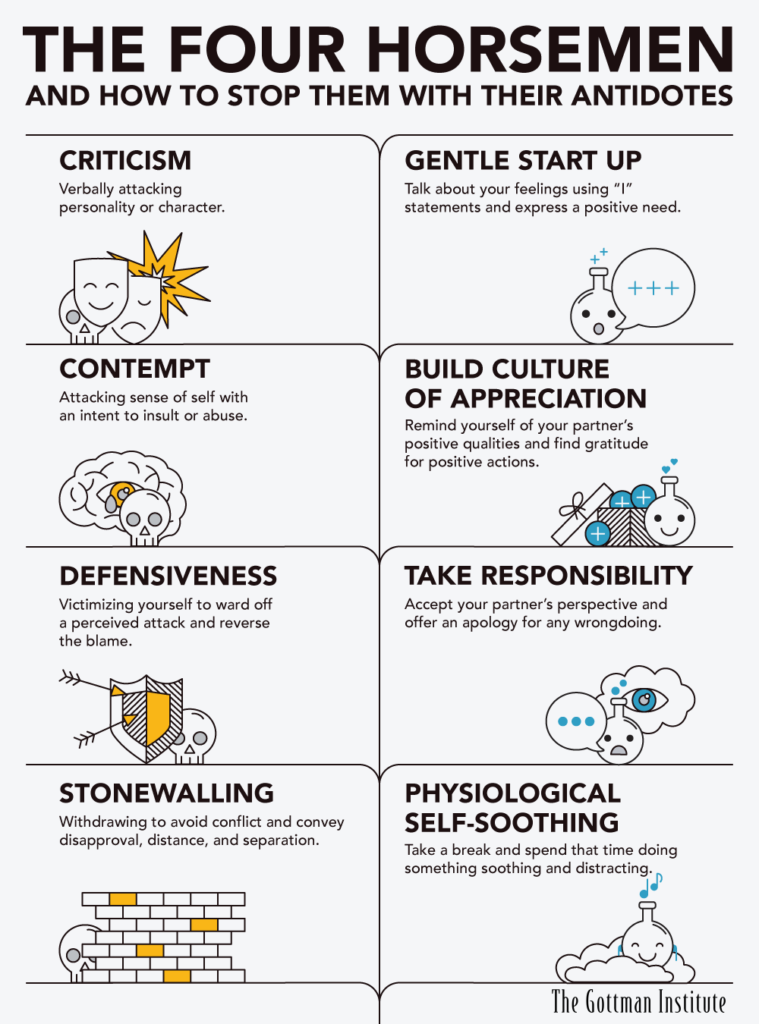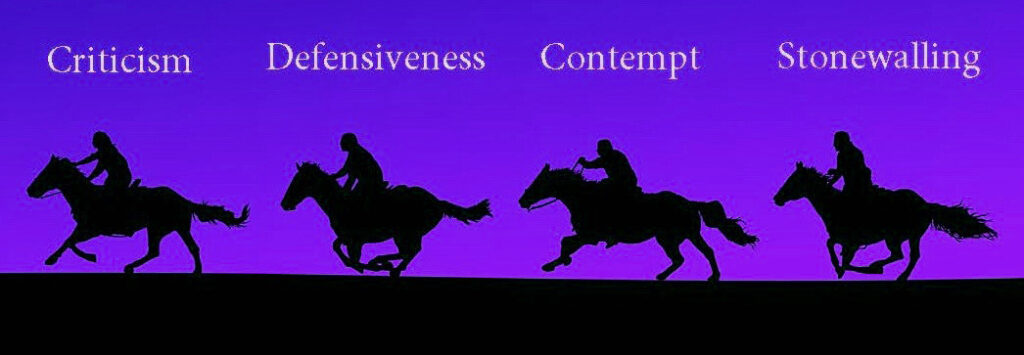
When one or both partners are using any of the Four Horsemen during a conflict discussion or other interaction, they must learn to identify the use of the Horsemen of the Apocalypse, and modify these behaviors, as these behaviors are consistent predictors of divorce.
- Criticism
- Defensiveness
- Contempt
- Stonewalling
Let’s explain …
Four Horsemen
Criticism
Criticism in the way we are using it here—is describing a problem as a flaw in your partner’s personality, for example, “You are so lazy.” Statements that begin with “You always” or “You never” imply criticism, too. A criticism implies that there is something wrong with our partner’s character. The antidote to criticizing is to use a gentle start-up.
Defensiveness
Defensiveness is an attempt to protect oneself, to defend one’s innocence, to ward off a perceived attack. Sometimes this is done by counter-attacking, or by whining (innocent victim stance). The antidote to defensiveness is to accept responsibility for at least a small part of the problem.
Contempt
To be contemptuous is to put someone down, to take a higher plane – for instance, taking a higher moral ground. Contempt is any critical statement you make when you feel superior to your partner. It’s a position of “I’m better/smaffer/kinder/etc. than you are.” Contempt is our single best predictor of divorce m heterosexual couples or break up m same-sex couples. The antidote to contempt is to describe your own feelings and needs, and creating a culture of appreciation.
Stonewalling
To stonewall means that the listener withdraws from the Interaction while staying in the room. Basically, this means not giving cues that he or she is listening, for instance by looking to the side, not maintaining eye contact, or crossing one’s arms. Men exceed women m this area. The antidote to stonewalling is self-soothing and staying connected in the interaction.


